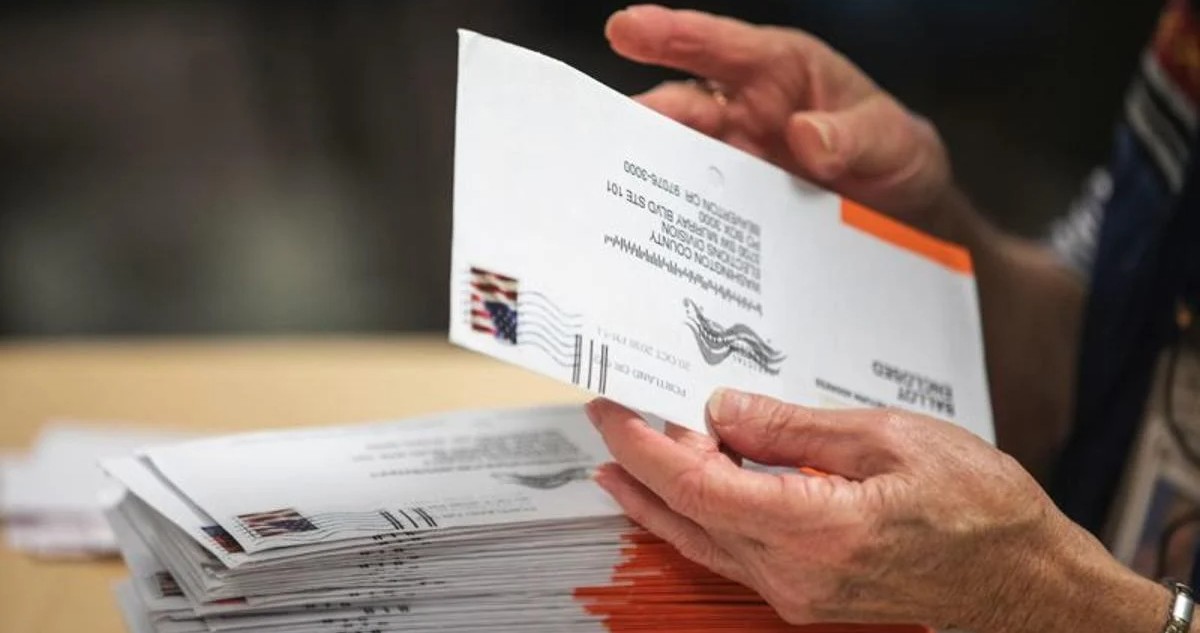OPINION: This article may contain commentary which reflects the author's opinion.
Missouri lawmakers passed a measure that was signed by Gov. Mike Parson aimed at significantly enhancing election integrity.
According to reports, Missourians wanting to vote in this fall’s elections will have to present a valid photo ID after nearly two decades of Republicans pushing for the requirement.
“The new Missouri election law also will open a two-week window for people to cast absentee ballots in person without needing to cite a reason why they can’t vote on Election Day – a provision pushed by Democrats as a compromise for not attempting to block the photo ID requirement,” KMBC reported.
Republicans control both chambers of the Missouri legislature as well as the governorship.
The new law is scheduled to take effect on August 28; the state’s primaries are Aug. 2.
The report adds:
It comes amid a renewed national emphasis on election laws. Democrats in many states have sought to expand voter access following widespread mail-in voting during the pandemic-affected 2020 elections while many Republicans have pursued new voting restrictions that they contend would cut down on the potential for fraud.
Missouri’s measure was backed by Republican Secretary of State Jay Ashcroft. who called it “one of the strongest election laws in the country.”
“It makes sure that it’s easy to vote, it’s harder to cheat and the people can have trust in the results,” Ashcroft told reporters.
Besides Missouri, 17 other states have a photo ID law in place for voters as of this spring, according to the National Conference of State Legislatures. In addition, 19 other states have ID laws that require proof other than photos.
“Missouri’s new law also bans the use of drop boxes to collect absentee ballots, mandates cybersecurity reviews and prohibits private donations for elections, with exceptions for personal protective equipment, water or food for election workers,” KMBC reported. “It abolishes Missouri’s presidential primary, leaving parties to instead hold caucuses or conventions, and it allows voters to register by party starting in 2023.”
The report adds: “Missouri Republicans have sought for years to impose photo ID requirements but have been rebuffed by courts. The state first adopted a photo ID requirement in 2006 that was ruled unconstitutional by the state Supreme Court.”
GOP lawmakers, in passing the bill, made reference to a 2016 ballot measure that was approved by 63 percent of voters authorizing a constitutional amendment that required a photo ID to vote. However, lower courts put on hold an accompanying law that actually mandated the photo ID requirement.
In January 2020, the state Supreme Court struck down a “misleading” and “contradictory” provision that required voters to produce a sworn statement without a voter ID in order to cast a ballot.
The latest law says Missourians can cast a ballot without a government-issued ID that will be counted if they return later in the day with a photo ID or if election officials are able to verify their signatures. As was the case with the previous law, the new statute requires the state to provide residents with a free photo ID for those who do not have one.
Black lawmakers blasted the bill and, as they have in the past, claimed without clarification that voter ID laws are inherently racist.
But Ashcroft pushed back on that assertion and put the issue back on those lawmakers.
“It seems pretty racist to me to say that the color of skin determines whether or not someone knows how to get an ID,” Ashcroft said Wednesday.
On Thursday, the U.S. Supreme Court, meanwhile, agreed to hear a case that is very likely to determine the outcome of nearly all future congressional and presidential elections.
The case centers around whether Republican legislators from North Carolina GOP have the authority to draw a partisan election map and not have state judges interfering, Just The News reported:
The case of Moore vs. Harper, asks the court to uphold the concept – known as the “independent state legislature” theory – that state legislators have the sole and “independent” authority to set rules for federal elections in their states, without interference or oversight by the governor or the state judges.
